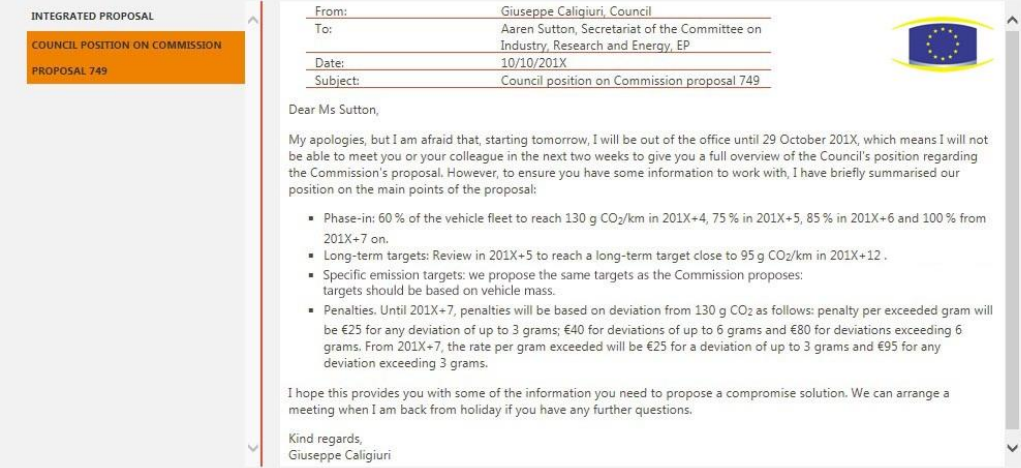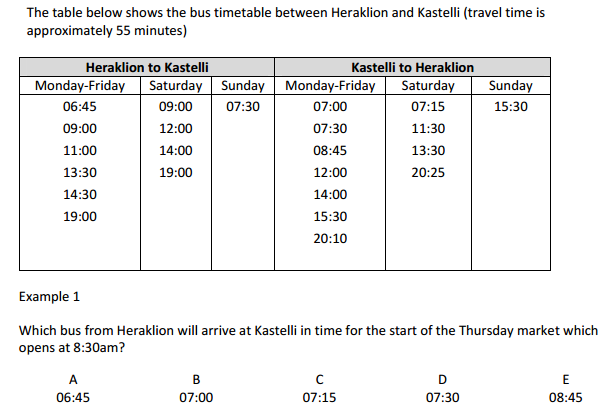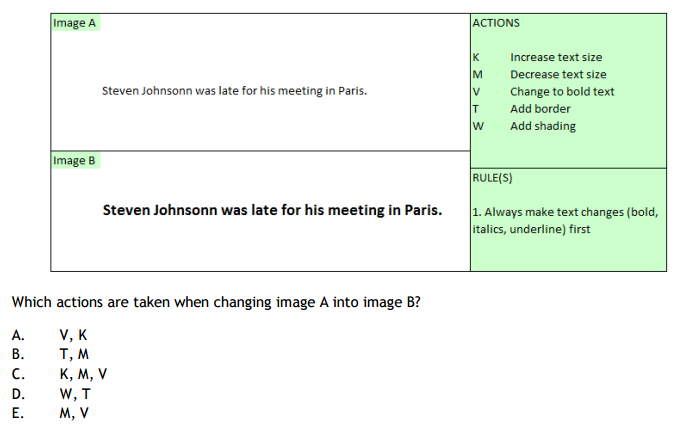
Epso Tests
Epso Tests
The European Personnel Selection Office or EPSO is an organization specifically responsible for testing and selection of potential employees for European Union institutions. EPSO helps discover the most suitable employees for a number of European institutions and agencies, such as the European Parliament, the European Commission, the Court of Justice, the European External Action Service, the Economic and Social Committee and others. EPSO specializes in personnel selection, through the means of effective, competent and objective selection procedures. Since EPSO tests are a large part of the preselection process, it is vital for those who would like a position with a European Union agency or institution, to have a good understanding of these tests.
EPSO tests included in the Pre-selection
In order to be considered by the Assessment Center, candidates must take the EPSO pre-selection tests, which differ depending on the position one would like to apply for. This practice has been adopted to sift through the large number of candidates for European Union positions.
There are a few main types of pre-selection EPSO tests that you need to be aware of, if you would like to apply for a position at any European Union institution.
- EPSO Reasoning skills tests
These tests assess the candidate’s ability for verbal, numerical and abstract reasoning. These EPSO tests are available in 23 of the official European languages and are normally completed in the candidate’s first language. This evaluation is based on the multiple choice method, where you have a few options and need to choose a single correct answer out of them.
In the section of intended to assess EPSO numerical reasoning, candidates are presented with graphs, charts and other numerical data, resembling what you would normally find in a report or a formal article. Candidates are then asked to assess the data and make a conclusion therefore answering the specific question with comes with every element of the test.
The section intended to assess EPSO verbal reasoning presents candidates with a short abstract from a text. Candidates are then asked to answer a logical question, based on the text they have just read. The abstracts have been selected from various types and genres of written content.
EPSO Abstract reasoning is evaluated by presenting the candidate with diagrams. Every question in this portion of the test has a series of five diagrams and five new options. It is the candidate’s task to select the diagram which would complete the series in a logical manner.
The EPSO Situational Judgment Test or SJT is one of the most important EPSO tests. If you would like a career with a European Union institution, it is vital to prepare for the SJT. In this assessment, you are presented with a realistic but hypothetical situation, which can occur in the professional environment. The situation requires action in order to be solved in the most efficient manner. You are then provided with four optional courses of action. As a candidate for a position with the EU, your task is to select the most effective course of action, as well as the least effective course of action. There are two options which remain neutral and should not be selected.
When it comes to the EPSO SJT, it is important to remember that one should take into account only the information which has been provided. It may be tempting to add from your own experience, but this way you run the risk of selectin inappropriate answers. The SJT is crucial for EPSO tests held during pre-selection, since it makes up for 66% of the final mark. This EPSO test is usually conducted in the candidate’s second language.
- EPSO E-tray Test
As is the case with all other EPSO tests, E-tray exercises are relevant to the organizational environment and therefore relate to what one might realistically encounter on a daily basis. This part of the pre-selection procedure includes an e-mail, addressed to the candidate, which is you. The e-mail contains a call to action of some sort – it could be a request, a complaint, an informatory e-mail or something else. You are then provided with a short description of the circumstances, which may include your position in the organization, responsibilities, etc. Finally, you are provided with a few optional courses of action and are asked to select the most efficient and appropriate one. With the EPSO E-tray exercises, you need to mark each possible course of action, deciding between the following: – – totally disagree / – disagree / – + neutral / + agree / ++ totally agree. The E-tray part of the test is conducted in the candidate’s second language, which here may be English, French or German.
Please remember that while these are the most important tests which EPSO applies in their pre-selection procedure, you should always make sure you have checked what is included in the pre-selection procedure for the specific position you would like to apply to as each competition might have – for example – different EPSO tests requirements. Some of these EPSO tests are Accuracy and precision, Prioritising and organising, Language tests, Finance skill tests, Office skill tests.
This is a uniquely designed test, to assess the skills of candidates who would like to apply for Assistant positions. The test consists of 40 questions, the allocate time is six minutes and the candidates have to be assessed in English, French or German – whichever one is their second language.
For each question, candidates are presented with two tables, containing several pieces of information, both written and drawn. The goal is to compare the two tables and discover the mistake in one of them, as quickly and accurately as possible. Here time management is a crucial skill. Although the test may not seem difficult at first, keeping in mind that there are only 6 minutes to answer all 40 questions, practice is certainly needed. The more you practice, the faster and more precise you will become.
- EPSO Prioritising and Organising
This is a test, which all candidates who want to apply for Assistant positions must take. It consists of 24 questions, which need to be answered within the timeframe of 30 minutes. This is test that assesses the speed of your deduction skills, as well as your ability to organize a schedule, while analyzing information.
Typically, a question would consist of a particular situation, where you need to use your organizational skills, in order to complete a task. The tasks are usually related to travel or commuting – for instance a question could contain information about the daily train schedule and a situation where you would need to board the most suitable train. You are then given a multiple choice question, consisting of 5 options, and are asked to choose the answer, which will help you organize your schedule in an optimal way.
- Office Skills Test
This is a test for candidates who want to apply for the position of Assistant (AST – SC). The test assesses your ability to use IT-based tools, to complete certain operation. It is in the candidate’s second language, and contains 30 questions, which have to be answered for 30 minutes.
An example of a question could be that a candidate is provided with 2 images – A and B. Image A should be converted into image B, using office-appropriate computer software. Below the 2 images, candidates are provided with a multiple choice question, consisting of 5 options. There you have to choose a single option, thus indicating the actions that have been taken, to transform image A into image B.
Epso Tests Results
When it comes to pre-selection with EPSO tests, it is important to remember that whether you pass the procedure successfully or not, depends largely on how your score compares to that of you competitors. So, if many people have scored higher than yours, you might not pass the pre-selection procedure. However, if you have high scores, compared to most other candidates, then you will likely pass the test. For some perspective, have a look at the epso competition statistics from 2013 for different competition fields. Overall, a great score would be over 85-90%.
Epso Tests Pass Marks
Finally, in order to understand pre-selection and EPSO tests better, you should know what score you need, in order to pass each part of the procedure. Note that it is mandatory to obtain the pass mark for each test you take but you will need much higher score than the pass park to advance to next phases of the EPSO competitions. The minimum scores you will need to exceed are as follows:
– Verbal reasoning: 5/10
– Numerical reasoning: 5/10
– Abstract reasoning: 10/20
– SJT: 24/40
– E-tray: 3/10 per competency
– Accuracy and precision: 20/40
– Organizing and prioritizing: 12/24
– Office skills test: 15/30

EPSO/AD/288-292/14 Competitions for Lawyer Linguists in the European Parliament and the Council launched
EPSO/AD/288-292/14 Competitions for Lawyer Linguists in the European Parliament and the Council launched
The number of successful candidates sought per competition is 12 for each of the following languages: Finnish (EPSO/AD/288/14), French (EPSO/AD/289/14), Portuguese (EPSO/AD/290/14), Romanian (EPSO/AD/291/14) and Slovakian (EPSO/AD/292/14). These competitions are intended only for candidates who have a perfect command of the language of the competition.
The preselection tests for the EPSO/AD/288-292/14 competitions are computer-based language and translation tests in the following specific order:
– If you have validated your application in time, you will be invited to sit the language and the translation tests by reserving a date until the deadline, notified to you via your EPSO account;
– A test of your second language with 12 multiple-choice questions. The pass mark will be 7 out of all and the time allowed will be 25 minutes (this is a eliminatory test);
– Translation into the language of the competition (language 1) of a legal text in language 2, without a dictionary. Marking: out of 80, Pass mark: 40 and the time allowed is 2 hours. The marks obtained in this test will count towards the final result together with the marks obtained in the tests held at the assessment center.
Within the assessment center you will sit three types of assessment tests, the content of which is validated by the selection board:
- The reasoning ability will be assessed by a verbal, numerical and an abstract reasoning test.
- Your specific competencies in the field will be assessed by a summary in the language of the competition of a text in your third language and an oral presentation.
- Your general competences will be assessed by an oral presentation, a structured interview and a group exercise.
The deadline for the application, including the validation process is 18 November 2014 at 12 midday (Brussels time).
For more details on EPSO/AD/288-292/14 competitions you can take a look at the next link:
http://eur-lex.europa.eu/legal-content/EN/TXT/HTML/?uri=OJ:C:2014:366A:FULL&from=EN

EPSO Profiles – Law
EPSO Profiles – Law
The following EPSO Profiles Law related are the most frequent ones to be included in the EPSO Competitions planning.
Lawyer
The following are the functions of EU lawyers:
- Developing a wide legislation range
- Drafting policy documents
- Coordinating with EU national authorities for improvements in national legislation
- Conducting in-depth research and analysis
- Providing legal advice to higher management
- Implementing programs of activity
- Supervising and assisting colleagues
Suggested Qualifications:
- Good command over at least two European languages, of which one must be English, French or German
- For Grade AD 5 (entry level), must hold a degree in Law or be graduating this year
- For Grade AD 7 (a much more senior level), several years’ experience is required in a related field
Lawyer-Linguist (AD 7)
The following are the functions of EU lawyer-linguists:
- Playing a vital role in lawmaking
- Ensuring that, in every European language, all new legislation has a common meaning
- Drafting, checking, translating and revising legal texts
- Recognizing what EU legislation intends and manifesting that in one’s own native language
Suggested Qualifications:
- Excellent command in one European language and a thorough command of at least two others
- Degree in law
Legal Assistant
The following are the functions of EU legal assistants:
- Helping to analyse and summarize files in order to prepare the position to be taken by the institutions, legal officers, and/or lawyers instructed.
- Helping to draft advice on questions relating to law, litigation, or procedure.
- Conducting preparatory research and analysis of European and national law.
- Compiling files on Community and national litigation and enforced recovery of debts.
- Carrying out research and managing requests for access to documents from European citizens within the framework of applicable legislation.
- Monitoring action taken, the procedural stages (pre-litigation and litigation phase), and compliance with deadlines.
Suggested qualifications for Epso Profiles Law:
- Post-secondary education attested by a diploma in the legal field or a level of secondary education attested by a diploma giving access to higher education, followed by at least 3 years’ professional experience relevant to the nature of the duties.

Epso Profiles – Finance
Epso Profiles – Finance
The most common EPSO Financial profiles announced in EU Competitions are the Financial Manager, Financial/Accounting Assistant ones. Their duties, responsibilities and suggested qualifications are expressed below.
Financial Manager (AD, CAST)
The following are functions of EU financial managers:
- Working with very complex financial structures
- Closely supporting senior decision-makers
- Defining financial and budget procedures
- Preparing accounts and annual reports
- Helping with audits and inspections
- Managing organizational risks
- Advising and supervising colleagues
Contract staff may be employed to carry out some finance tasks.
Suggested Qualifications:
- Good command over at least two European languages, of which one must be English, French or German
- For Grade AD 5 (entry level), must hold a degree or be graduating this year
- For Grade AD 7 (a much more senior level), several years’ experience is required in a related field
Recruitment may vary for contract staff.
Financial Management/Accounting Assistant (AST, CAST)
Financial management/accounting assistants use specific IT tools, like integrated accounting systems to help with the following:
The following are functions of EU financial management/accounting assistants:
- Implementing accounting and financial systems
- Keeping financial and/or budget accounts
- Developing, drawing up and implementing financial regulation procedures
- Presenting financial statements
- Planning and managing public procurement projects
- Carrying out operational and financial management of contracts or subsidies
- Bank reconciliation and interest accounts and/or cash management participation
- Observing financial and budget procedures
- Supervising accounting methods and revenue financial management
Contract staff may be employed to carry out some finance or accounting tasks.
Suggested Qualifications:
- Good command over at least two European languages, of which one must be English, French or German.
- Post-secondary education in finance or accounting with minimum three years’ relevant experience in the field or secondary education and minimum three years of relevant experience in finance or accounting.
The requirements for contract staff may vary.
Search Now
Recent Posts
-
On-Going Now: The Competition for EPSO’s Administrators in the Field of Audit Has Begun!
http://epsotraining.eu/wordpress/blog/2018/05/09/epso-administrators-audit-2018/ On-Going Now: The Competition for EPSO’s A
No comments -
EPSO’s Graduate Administrators (AD5) Opens this March 2018
http://epsotraining.eu/wordpress/blog/2018/03/05/epsos-graduate-administrators-ad5-opens-this-march-2018/ EPSO’s Graduate A
No comments -
Upcoming EPSO Competitions 2016
http://epsotraining.eu/wordpress/blog/2016/05/25/epso_competitions_2016/ Upcoming EPSO Competitions 2016 2016-05-25 18:45:46
No comments -
Administrators competition 2016 in the field of audit launched
http://epsotraining.eu/wordpress/blog/2016/05/16/notice-open-competition-administrators-field-audit/ Administrators competiti
No comments









